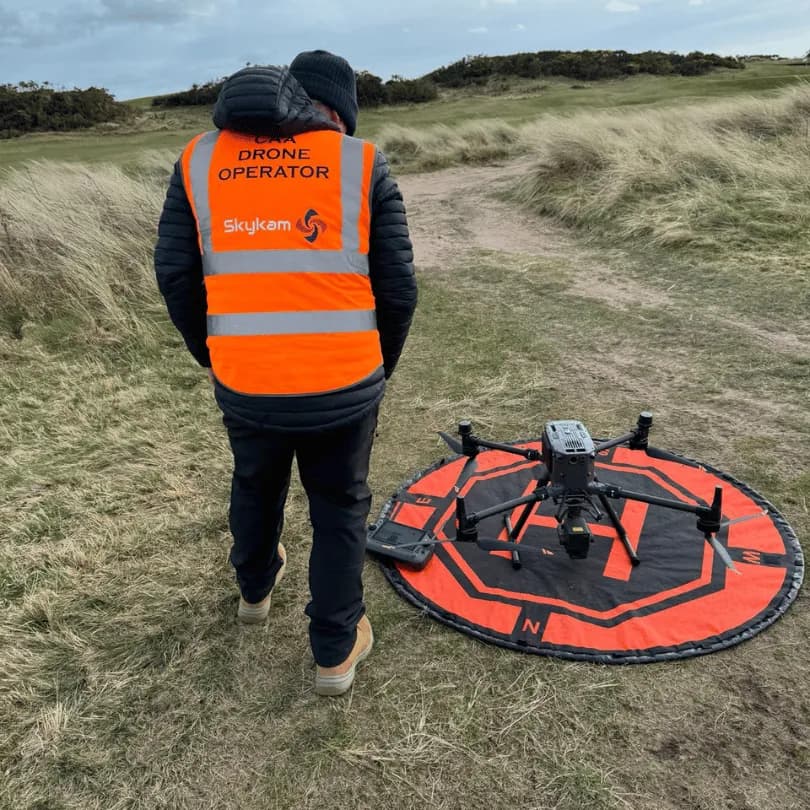
UK police have significant and expanding powers to stop you, check your documents, and even seize your drone—a reality I navigate on every commercial flight as a GVC licensed drone operator.
It's not just about the Drone Code; officers can enforce the Air Traffic Management and Unmanned Aircraft Act 2021, and they are increasingly coordinating with the CAA to ground drone pilots who can't produce their Flyer ID, Operator ID, and insurance on the spot.
Whether you're a hobbyist wanting to fly without hassle or a business needing to ensure your aerial project is fully compliant, this guide provides the professional insider's view on what to expect and how to stay on the right side of the law.
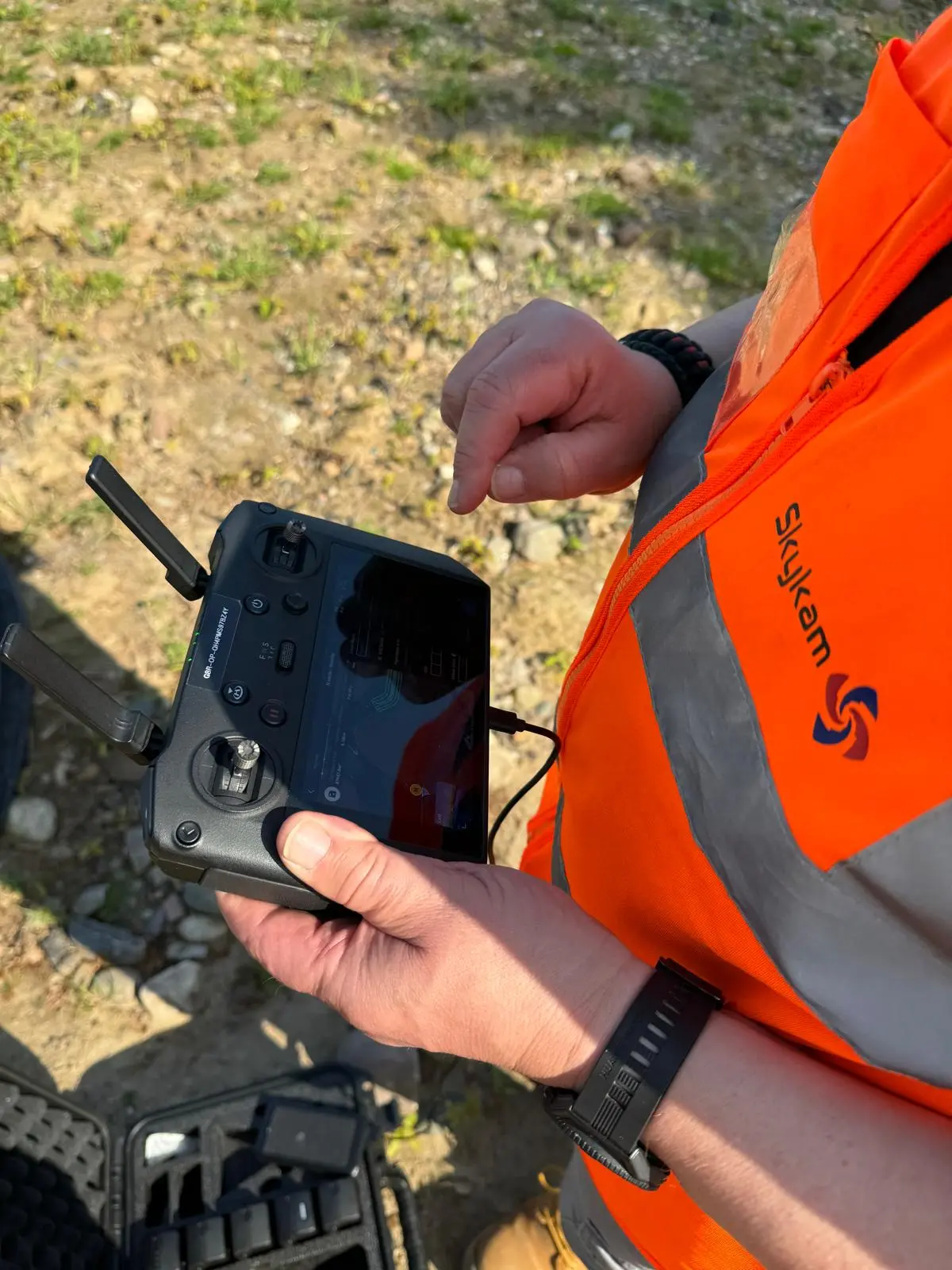
30 Second Summary
- Police can request and verify drone operator documentation including Flyer ID, Operator ID, and proof of competency
- Officers can order drones to be grounded immediately if flown illegally or in a dangerous manner
- Police have authority to seize drones as evidence when investigating potential criminal activity
- Officers can request flight logs and insurance documentation to verify regulatory compliance
- The 2021 Act expanded police powers to require landing, conduct searches, and access drone systems
UK police can request to see a pilot’s Flyer ID, Operator ID, and proof of competency
In the rapidly evolving landscape of drone operations, UK police officers hold significant authority to verify your documentation. If you're flying a drone, officers can request to see your Flyer ID, which confirms you've passed the necessary theory test, and your Operator ID that should be displayed on your drone.
Police are entitled to inspect your proof of competency, particularly for commercial operations or when flying in specific categories.
Failure to produce these documents when requested may result in penalties or flight termination. The Civil Aviation Authority works closely with police forces to enforce these regulations.
I find it's always best to have both a physical, laminated copy of my documents in my drone bag and a digital version saved on my phone. That way, I'm never caught out and can produce them immediately, which always starts any interaction on the right foot.
Police can require drone pilots to provide flight logs and insurance documentation
Beyond checking your primary IDs, officers also have the authority to request further documentation. If you're operating a drone, police can demand to see your flight logs, which record your drone's path, altitude, and duration of flight.
These logs serve as evidence of your compliance with airspace restrictions and flight regulations.
Officers can also ask for proof of drone insurance, which is mandatory for most drones, especially those used for commercial purposes. You'll need to present valid insurance documentation covering third-party liability. Failure to provide these documents when requested may result in penalties or further investigation.
From experience, I make it a habit to complete my flight logs right after a flight while the details are still fresh. It saves a lot of headaches later and looks much more professional if you're ever asked to present them.
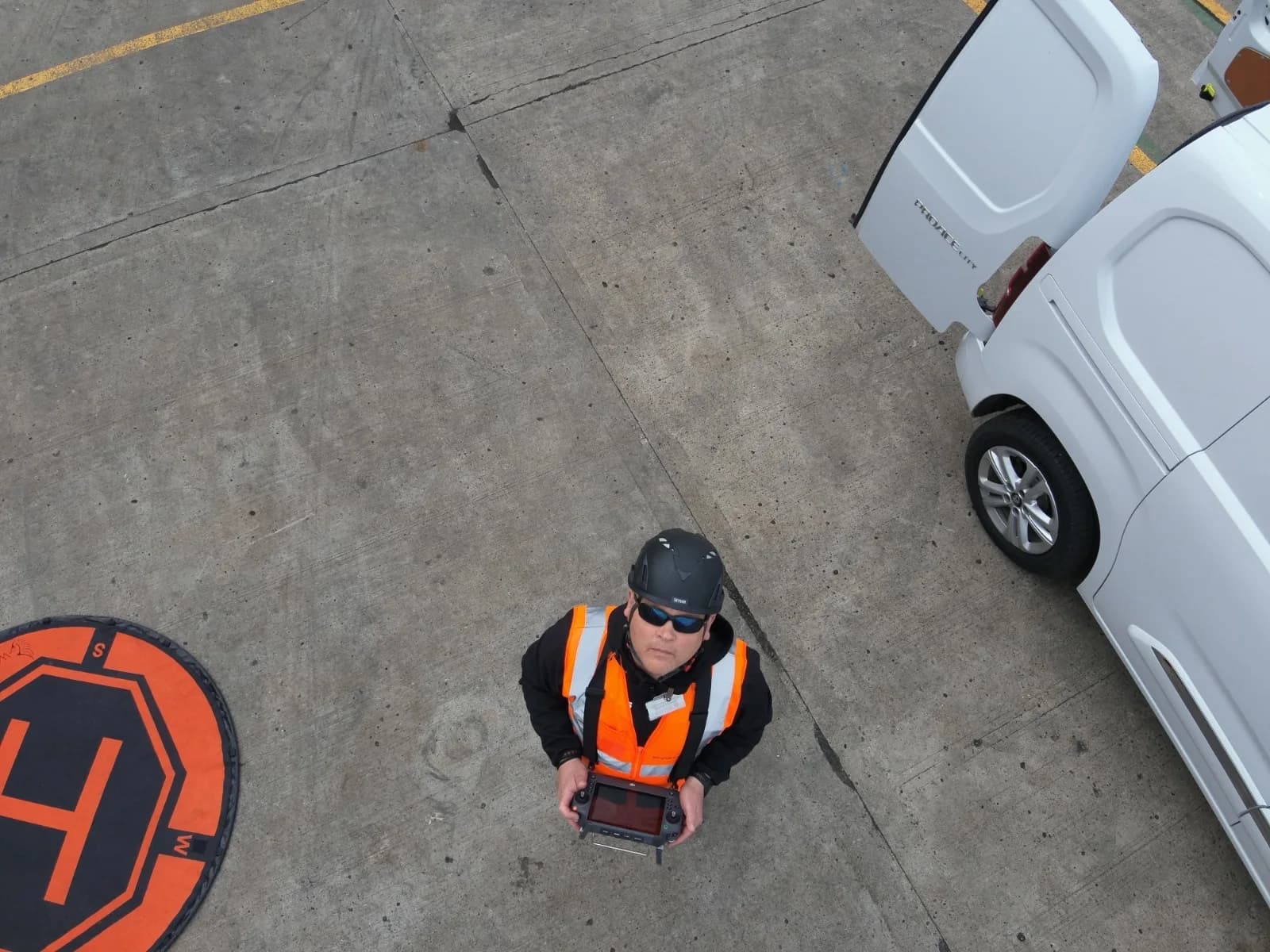
Police have authority to ground, seize, or confiscate drones suspected of illegal use
UK police possess three key enforcement powers when confronting potentially illegal drone operations. Officers can issue a direct order to ground your drone if they suspect you're flying illegally or dangerously. Refusing to comply is itself an offense.
Police also have authority to seize your drone as evidence if they believe it's been used in criminal activity. This typically occurs when investigating privacy violations, trespassing, or dangerous flying near airports or crowds.
In serious cases, particularly those involving national security threats or significant public safety risks, officers can permanently confiscate your equipment. The Air Traffic Management and Unmanned Aircraft Act 2021 strengthened these powers, allowing officers to require you to land your drone, enter premises to search for and seize drones, and access electronic information stored on the device.
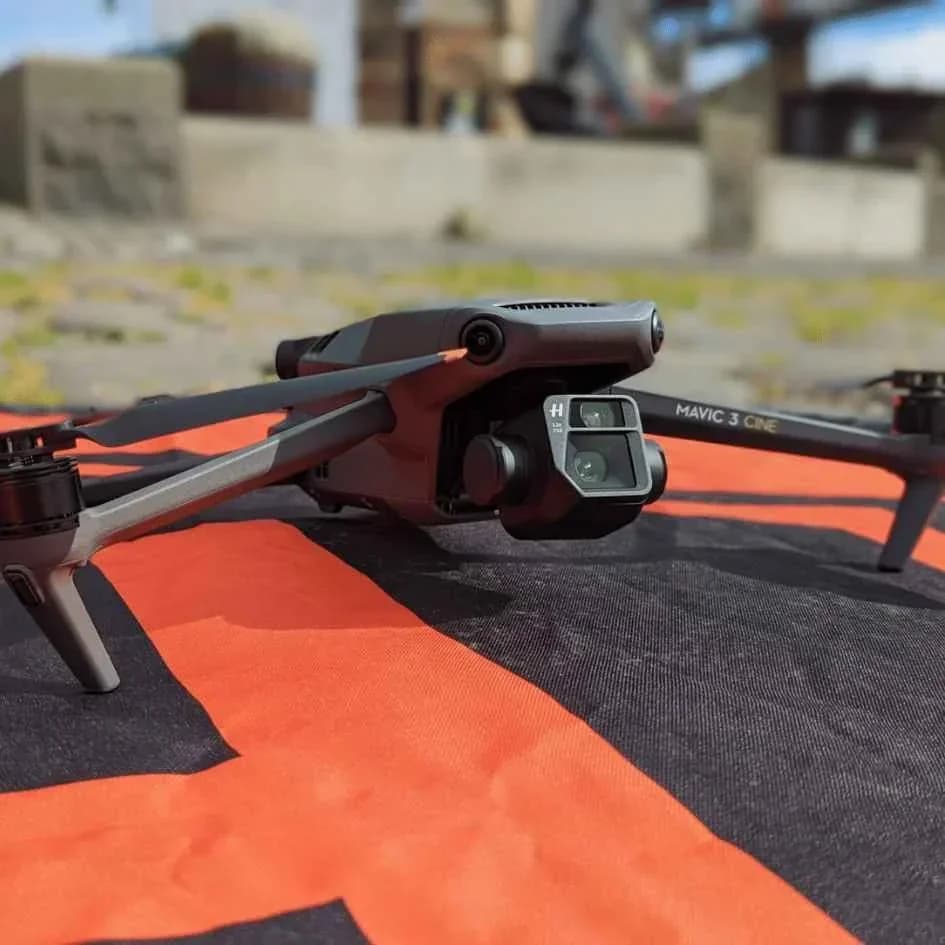
What to Do if You Are Approached by Police
Being approached by an officer while flying can be intimidating, but knowing how to respond can ensure the interaction is smooth and professional. If police approach you, follow these steps:
Land Your Drone Safely: As soon as it is safe to do so, land your drone. Do not rush or make abrupt manoeuvres. Inform the officer that you are in the process of landing it securely.
Remain Calm and Cooperative: Listen to the officer's instructions and be polite. A cooperative attitude can de-escalate any potential tension.
Have Your Documentation Ready: Be prepared to present your Flyer ID, Operator ID, proof of competency, and any other relevant paperwork like flight logs or insurance. Having these readily available shows you are a responsible drone pilot.
Answer Questions Clearly: Answer the officer's questions honestly and concisely. If you are unsure about a regulation, it is better to say so than to guess.
A proactive step I always take, especially for commercial jobs, is to notify the local police of my operations in advance. I'll email them with my flight plan and planned take-off and landing times. They often provide an incident number which is incredibly useful. If a member of the public raises concerns, you can calmly explain that the police are already aware and provide the reference number. It diffuses potential conflict immediately.
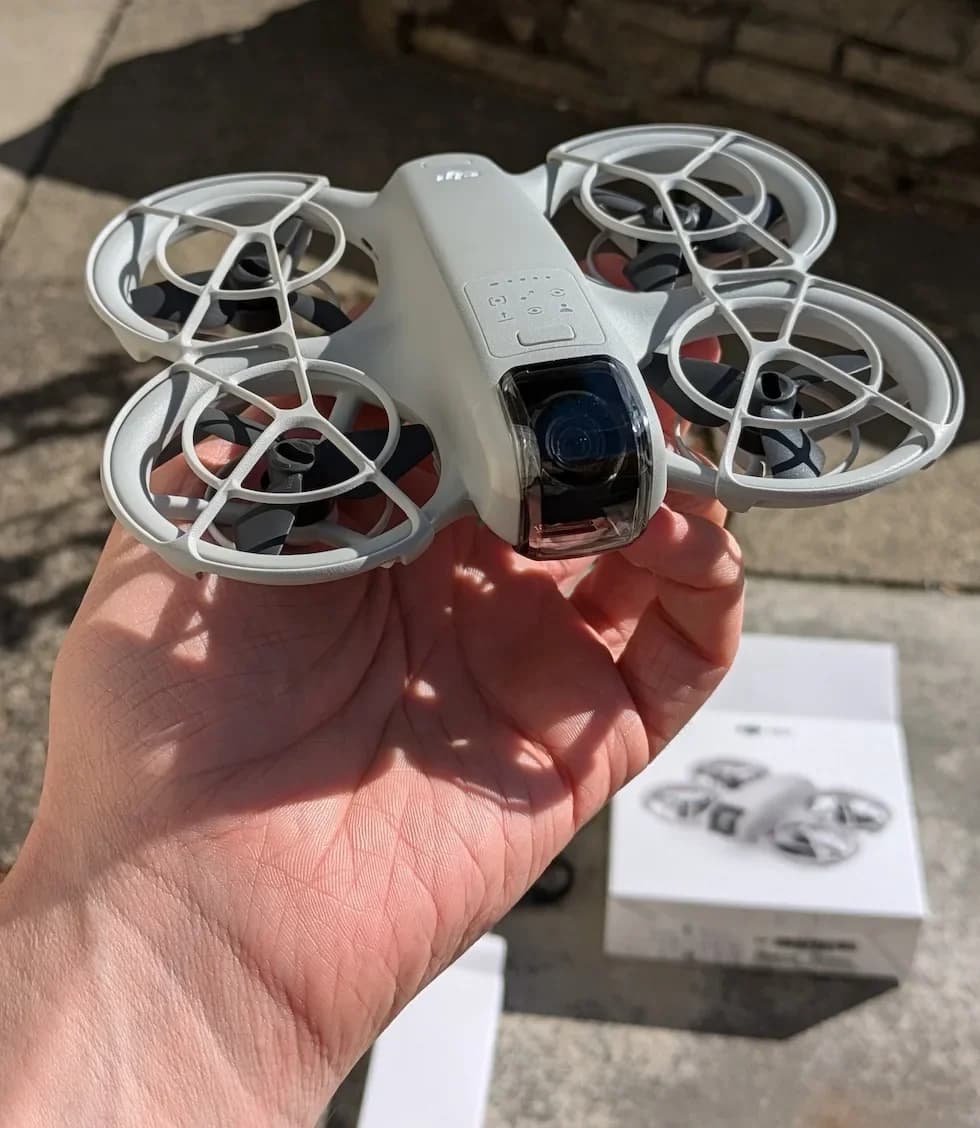
Illegal drone flying can result in fines, prosecution, and even prison sentences
Violating drone regulations in the UK can land you in serious legal trouble. If you're caught flying a drone illegally, you'll face penalties that vary based on the severity of your offense. For minor infractions, you might receive an on-the-spot fine of £100-£200, similar to a traffic ticket.
More serious violations can result in fines up to £2,500 for standard offenses, while endangering an aircraft carries penalties up to £5,000. The Civil Aviation Authority can also prosecute you under the Air Navigation Order, potentially leading to substantial fines.
I've heard stories from others in the industry, and these aren't empty threats. A simple mistake can cost you thousands and, more importantly, your reputation and permission to fly. It's just not worth the risk.
In extreme cases where you've deliberately endangered others or used drones for criminal activity, you could face imprisonment for up to five years. Additionally, your drone may be confiscated, and you could be banned from future drone ownership.
UK police are equipped with counter-drone technology in high-risk or sensitive areas.
To protect high-security facilities and critical infrastructure, British police forces have deployed sophisticated counter-drone technology across the country. You'll find these systems particularly concentrated around airports, government buildings, prisons, and major public events.
The technology includes radio frequency jammers that can disrupt drone control signals, forcing them to land or return to their launch point. Police also use detection systems featuring radar, acoustic sensors, and camera arrays to identify unauthorized drones before they become threats.
As a drone pilot, you learn to be acutely aware of these high-security areas. My flight planning software always highlights these zones, but I double-check manually too. Flying 'blind' without proper pre-flight planning is how you end up on the wrong side of this technology.
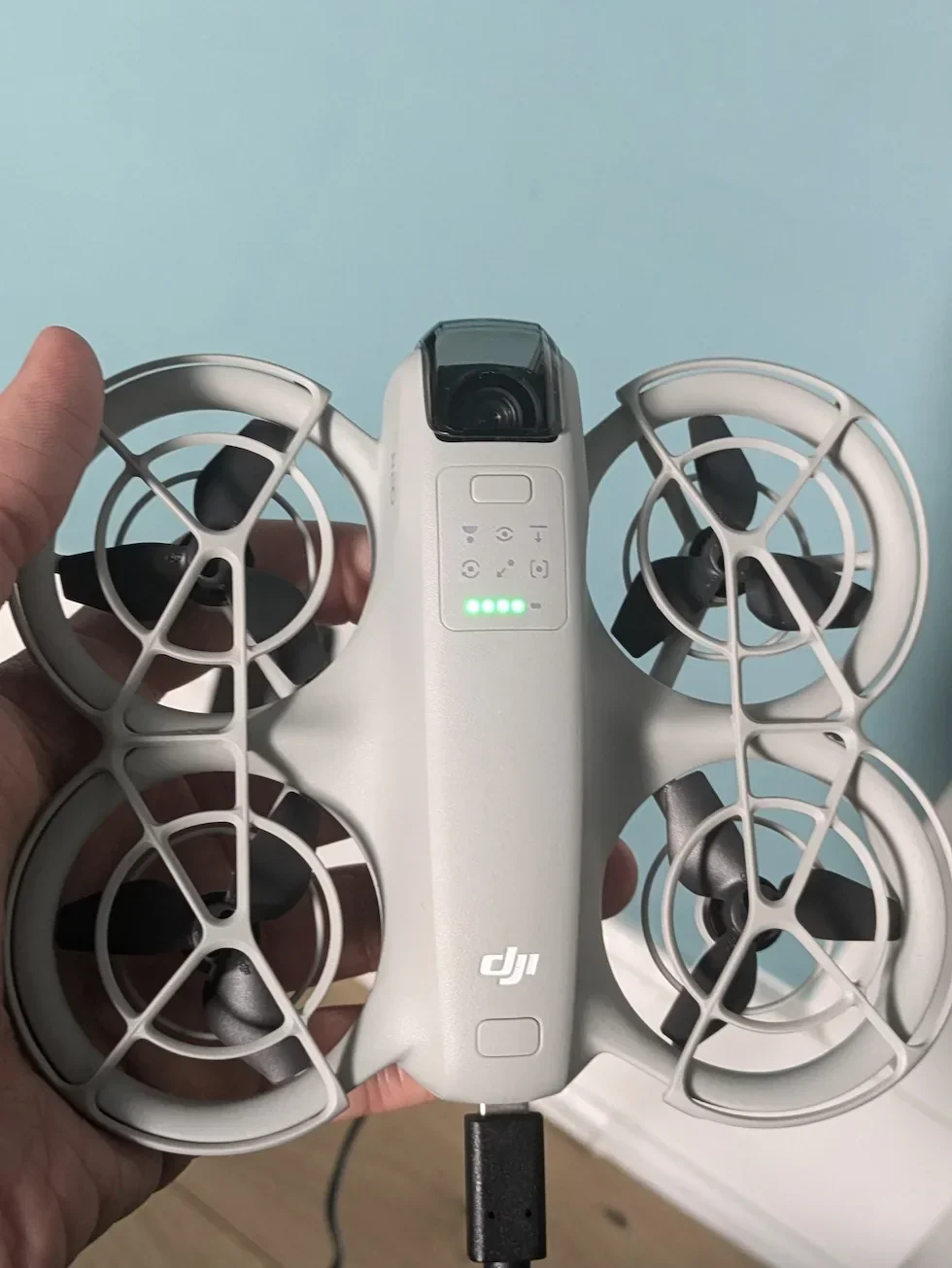
How to Report Suspected Illegal Drone Activity
If you see a drone being flown in a way that seems dangerous or illegal, you can report it. Your report can help maintain public safety.
Contact the police via their non-emergency number, 101. If a drone is posing an immediate and direct threat to life, call 999. When you report, try to provide as much information as possible, including:
The location of the drone and operator.
The time and date of the incident.
A description of the drone.
The direction the drone was flying.
Frequently Asked Questions
Can Police Access My Drone Footage Without a Warrant?
Police can access your drone footage without a warrant under certain circumstances in the UK. If officers believe your drone contains evidence related to a crime, they have powers to seize it and examine the footage. They might also request footage voluntarily. However, for planned investigations where they need to access your stored footage remotely, they'd typically require proper authorization under investigative powers legislation.
What Airspace Restrictions Can Police Enforce for Drone Flights?
Police can enforce several airspace restrictions for your drone flights in the UK. They'll intervene if you fly within Flight Restriction Zones around airports, near emergency incidents, over crowds, or above 400ft. They enforce no-fly zones around sensitive locations like prisons and government buildings. You're also prohibited from flying within 50 meters of people, vehicles, or buildings not under your control. Violating these can result in fines or prosecution.
Do Police Need Special Training to Identify Drone Violations?
Yes, police officers need specific training to identify drone violations effectively. You'll find that officers handling drone-related incidents typically receive training on drone identification, flight regulations, and the technical aspects of different drone models. They're taught to recognize illegal flight patterns, altitude violations, and restricted zone infringements. Without this specialized knowledge, it's difficult for officers to accurately determine when drone operators are breaking the law or posing safety risks.
Can I Refuse to Provide My Operator Information to Police?
No, you can't refuse to provide your operator information to police in the UK. Under the Air Traffic Management and Unmanned Aircraft Act 2021, police officers have the power to require drone operators to show their registration ID and competency certificates. Refusing to comply is an offense. If you're flying a drone, you must produce these documents when requested by an officer or risk facing penalties.
How Quickly Must I Land My Drone When Instructed?
You must land your drone as soon as reasonably practicable when instructed by police. There's no specific time limit defined in UK drone laws, but immediate compliance is expected unless safety considerations prevent it. Deliberately delaying or refusing to land could result in penalties under the Air Navigation Order or Police Act. Always follow landing instructions promptly while maintaining safe operations during the descent.
Fly with Confidence: Hire a Vetted UK Drone Pilot
Navigating UK drone laws and the significant authority police hold requires diligence and up-to-date expertise. To avoid the risk of fines, equipment seizure, or legal action, every flight must be fully compliant.
The most effective way to guarantee this is by partnering with a certified professional who understands the complexities of the legal landscape.
At HireDronePilot, the UK's premier managed marketplace, we solve this challenge by connecting businesses with verified professional drone pilots for hire. Our network consists of fully insured and qualified operators who are experts in CAA regulations and best practices, including coordinating with local authorities.
We streamline drone services through competitive bidding, ensuring quality, compliance, and value for every aerial project across the United Kingdom.
Don't let regulatory hurdles ground your project. Visit HireDronePilot.uk to post your job and connect with a professional who will manage the flight safely and legally, allowing you to focus on the results.
About the Author

Written by
Peter Leslie
Peter Leslie is a CAA-approved commercial drone pilot with 10+ years experience and over 10,000 flight hours. He holds the GVC and A2 CofC drone licences with full CAA Operational Authorisation. Peter is a member of ARPAS-UK, the UK's non-profit trade association for the drone industry. He founded HireDronePilot to connect UK businesses with qualified, insured drone operators.
Looking for More Drone Work?
Join the UK's leading network of professional drone pilots and grow your business.
Open Access
Bid on any job - all jobs open to all pilots
Grow Revenue
Access high-value commercial projects
Stay Busy
Fill your schedule with regular work
Related Articles
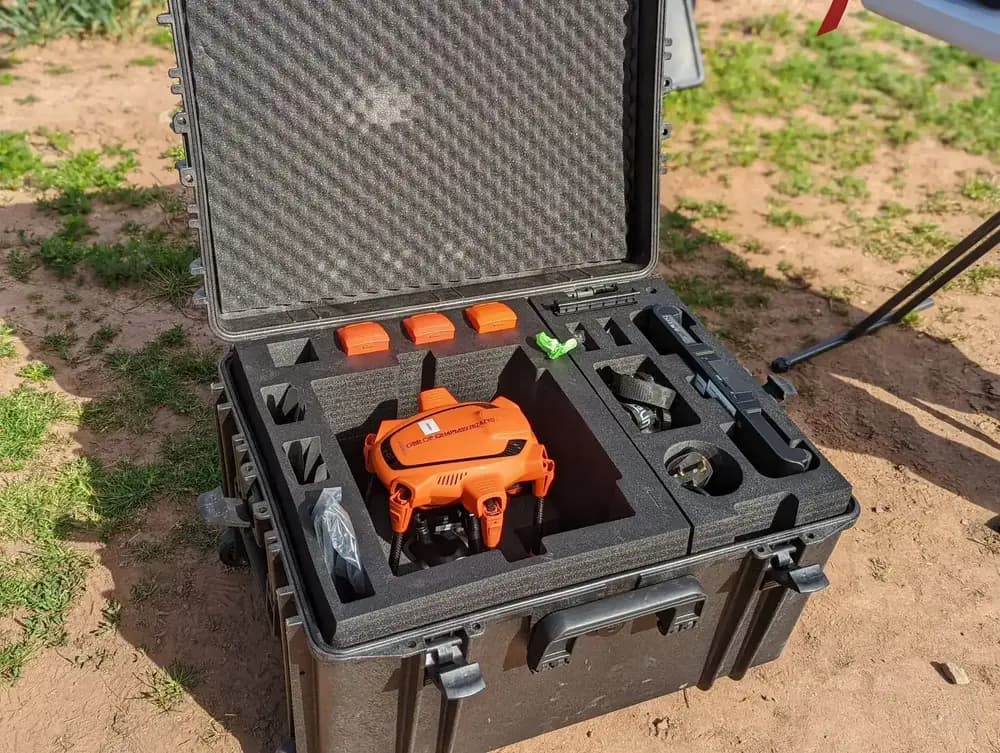
Our Drone Survey Service In Stirling, Scotland
Bringing you Stirling drone survey data from areas no one else can fly.

How Much Does A Drone LiDAR Survey Cost
Forecasting your drone LiDAR survey cost requires understanding what's hidden beyond the initial quote.
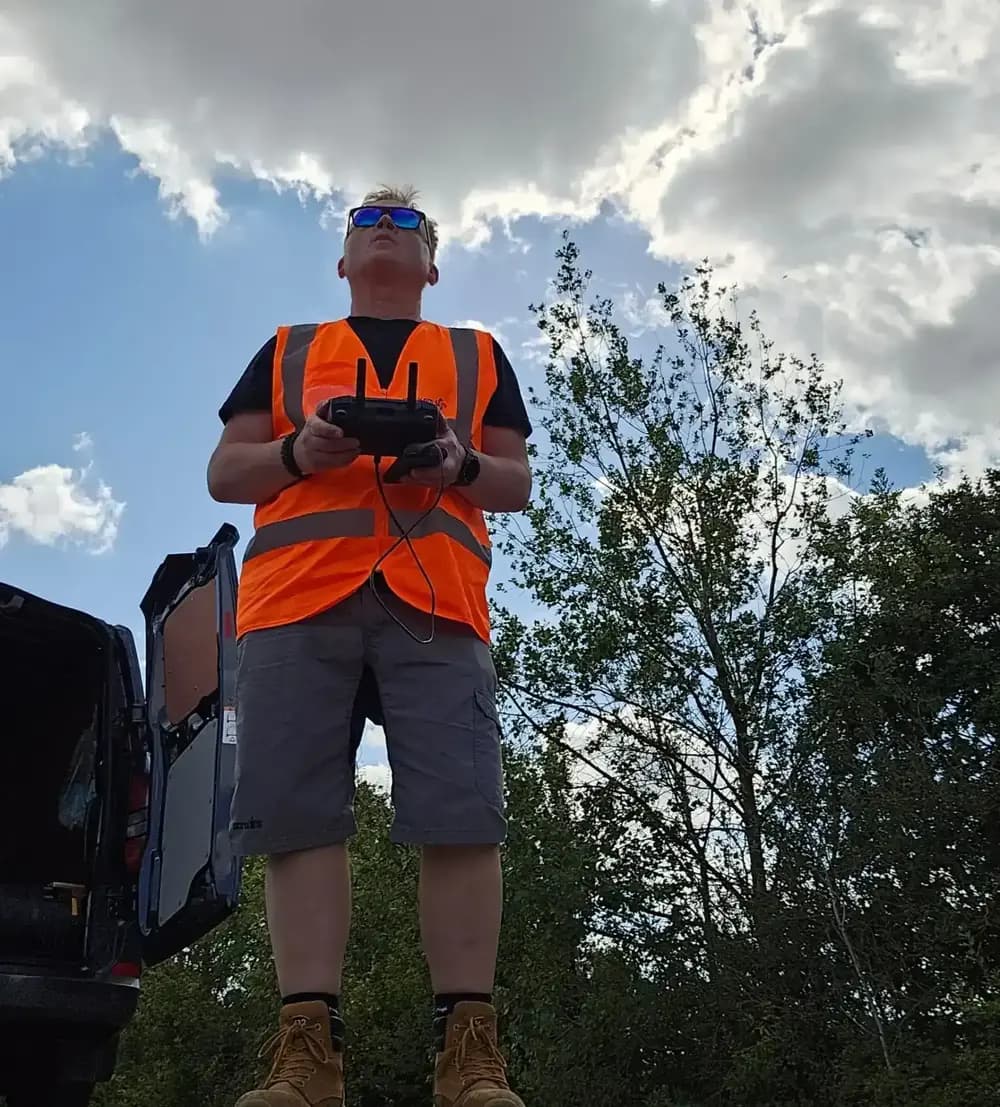
Step By Step Process Of Drone LiDAR Survey
Next, discover the crucial post-flight steps that determine your survey's success.
